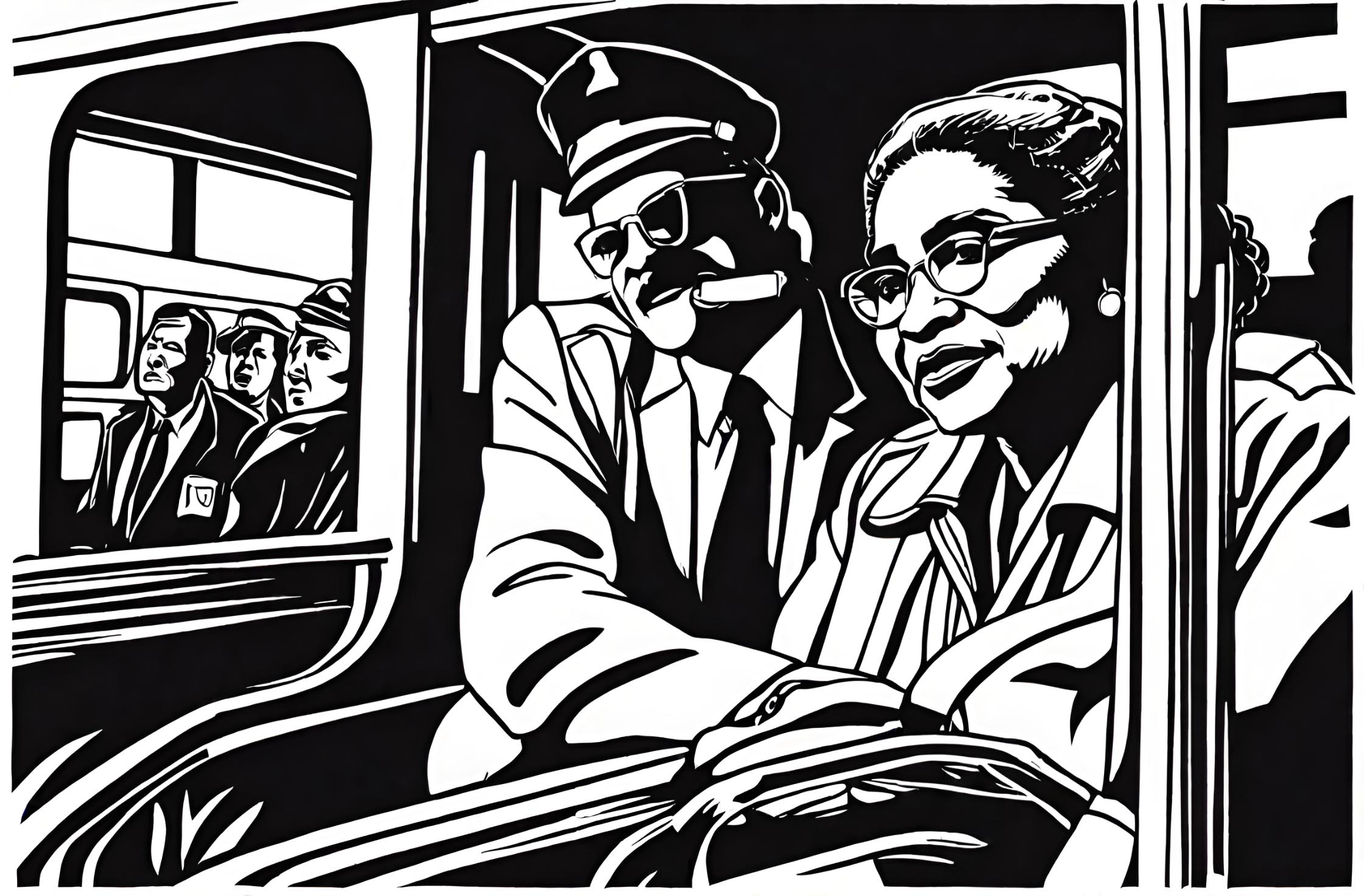Flashback to December 1
American History

In the annals of American history, few events resonate as strongly or ignited as much change as Rosa Parks’ arrest on December 1, 1955. Rosa Parks’ refusal to surrender her seat on a Montgomery bus sparked a national movement towards racial justice and equality. The incident is not just a historical marker, but a testament to the indomitable human spirit’s power against racial discrimination and segregation.
The story of how Rosa Parks, an African-American woman in Montgomery, dared to stand up against racial injustice has been a source of inspiration for countless people worldwide. On that fateful day, a rule typical of the era, enforcing racial segregation in public transport, was poised to play out as usual. Rosa Parks, a hardworking seamstress who had spent her day at work, boarded a Montgomery bus. Little did anyone know that her quiet act of defiance would ignite the Civil Rights Movement in the United States.
Rosa Parks’ decision not to surrender her seat to a white passenger wasn’t an impulsive act. It was a calculated move to challenge the immoral laws of segregation that were deeply ingrained in American society. Courageously, she decided to face the consequences rather than submit to the unjust laws that required African Americans to give up their seats for white passengers. She was arrested – a development that caused shockwaves not just in Montgomery, but across the globe.
There are key details that add more depth to Rosa Parks’ story. She was not tired as many people may assume. In interviews later, Rosa mentioned she was “tired of giving in,” expressing the exhaustion experienced by African Americans living under systemic racial segregation and discrimination. Her defiance was an act of rebellion against this system.
After Parks was arrested, local African American leaders, including MLK Jr, took up her cause and organized the Montgomery Bus Boycott. African American residents boycotted the Montgomery buses, which led to significant financial loss for the city’s transport system. This boycott lasted for over a year, significantly disrupting public transportation in the city. It marked one of the first major collective actions of the Civil Rights Movement.
Her arrest also galvanized the black community, leading to the formation of the Montgomery Improvement Association, headed by a young and relatively unknown preacher, Dr. Martin Luther King Jr. This event marked the beginning of King’s leadership position in the Civil Rights Movement, transforming him into a national figure.
Rosa Parks’ act of defiance and her subsequent arrest taught the world one critical lesson: change lies in the hands of ordinary individuals who have the courage to deny injustice. It reassured the truth that one person can make a monumental difference.
Understanding the story of Rosa Parks’ arrest in Montgomery isn’t just about understanding a significant historical event. It’s about recognizing the power of individual bravery and the impact it can have on society. Rosa Parks’ legacy serves as a beacon of hope and a potent symbol of the struggle for racial equality.
In today’s conversation on racial inequality and justice, it’s critical to remember the actions of individuals like Rosa Parks. By refusing to give up her seat on a Montgomery bus, she helped to change the world. Her courage and determination still inspire individuals and movements across the globe in the fight against all forms of prejudice, oppression, and discrimination.
To honor Rosa Parks is to continue her fight for justice and equality. Her arrest on December 1, 1955, is more than just a significant date in history. It’s a potent symbol of the persistent struggle for racial justice and equality – a struggle that continues to this day. The story of Rosa Parks is a critical component of the shared history of humanity, necessary for understanding the past and shaping a more inclusive future.
Approximately more than half a century has elapsed since the day Rosa Parks was arrested for refusing to give up her seat. Her simple act of defiance rippled through the fabric of a nation and initiated a sea of change that continues till today. Her name continues to resonate in the discussions of equality, freedom, and justice, reinforcing the relevance and timeless nature of her fight against social injustice.
We strive for accuracy. If you see something that doesn't look right, click here to contact us!
Sponsored Content

Rosa Parks arrested for…
Remembering December 1, 1955,…

Los Angeles Skid Row…
On December 1, 1974,…

Exxon announces a US$73.7…
"Exxon's historic acquisition of…

Airlift of refugees from…
On December 1, 1965,…

John D Rockefeller begins…
On December 1, 1868,…

Trans World Airlines flies…
On December 1, 2001,…

